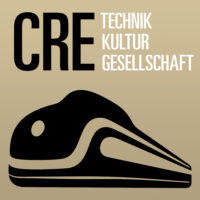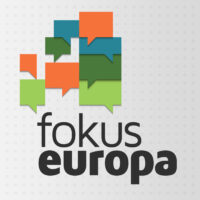A discussion with Meredith Whittaker

For this episode we made an exception and decided to record an interview in English. We are talking to Meredith Whittaker, president of the Signal Foundation, a non-profit company that's developing the Signal app that is world's most popular Multiplatform private encrypted messenger system. We talk to Meredith about her way into the digital realm, how she shook up Google by organizing walkouts and more or less erasing all memories to it's "don't be evil" motto, how Signal came to be and what its principles are, how she views Europe and the regulations policies of the EU and much much more.

Für diese Episode von Logbuch:Netzpolitik liegt auch ein vollständiges Transkript mit Zeitmarken und Sprecheridentifikation vor.
Bitte beachten: das Transkript wurde automatisiert erzeugt und wurde nicht nachträglich gegengelesen oder korrigiert. Dieser Prozess ist nicht sonderlich genau und das Ergebnis enthält daher mit Sicherheit eine Reihe von Fehlern. Im Zweifel gilt immer das in der Sendung aufgezeichnete gesprochene Wort. Formate: HTML, WEBVTT.
Transkript



































































































































































































































































































































Shownotes
- youtube.com: Casablanca – What watch? [CC] – YouTube
- ooni.org: OONI: Open Observatory of Network Interference | OONI
- measurementlab.net: Home – M-Lab
- en.wikipedia.org: Net neutrality – Wikipedia
- en.wikipedia.org: Vint Cerf – Wikipedia
- qz.com: The inside story of how Netflix came to pay Comcast for internet traffic
- en.wikipedia.org: AI Now Institute – Wikipedia
- en.wikipedia.org: Geoffrey Hinton – Wikipedia
- proceedings.neurips.cc: ImageNet Classification with Deep Convolutional Neural Networks
- nobelprize.org: Press release: The Nobel Prize in Physics 2024 – NobelPrize.org
- media.ccc.de: 22C3: We lost the war
- de.wikipedia.org: Moxie Marlinspike – Wikipedia
- signal.org: Signal >> Government Communication
- ainowinstitute.org: Research Areas – AI Now Institute



















Moin mon,
ggf habt ihr den HTTP-StatusCode vergessen.
Ich bin aber für was anderes hier ..
.. da in den vergangenen Sendungen mehrfach erwähnt wurde, dass „ggf- die Theman ausgehen“ ..
.. vllt. habt Ihr ja eine Sicht auf OpenDesk mitzuteilen
Ich denke es ist „hinreichend politisch getrieben“ und gleichzeitig „OpenSource“ und „ein Dorn im Auge vom Microsoft“, um hier erwähnt zu werden.
Auch nach der „gescheiterten“-Linux Umstellung in München.
Falls ihr da nen passenden Gast findet oder ähnliches noch cooler.
Ich fänd es nur schade, wenn es nichtmals in den Kurzmeldungen auftaucht – es fühlt sich, gemessen an OpenSource-Fortschritt in Deutschland schon ‚etwas größer‘ an.
LG
Zustimmung. Gerade soll die komplette öff. Verwaltung durch proprietäre Cloud-Stacks von Microsoft & Co gekapert werden, schön gekoppelt mit Cloud-Anwendungen die rein zufällig nur in Azure laufen (und demnächst nicht mehr on-premise erhältlich sein sollen). Alternativen um da raus zu kommen wie OpenDesk werden im Bundeshaushalt kaputtgekürzt. Übrigens fordern Koalitionsvertrag u Cloud-Strategie der Bundesregierung etwas ganz anderes (Vorrang für OpenSource). Von VMware-Alternativen, Thema Betriebssysteme usw. ganz zu schweigen.
In diesem Zusammenhang freue ich mich auch über die weniger sinnvollen Souverinitätsmaßnahmen der Bundesregierung, allen voran die von Scholz gelobte Delos-Cloud, die ja im Grunde nur ein rechtliches Feigenblatt für eine Microsoft-Cloud ist. So würd das nüscht mit dem Ausbruch aus dem Vendor-Lock-In und digitaler Souveränität….
Achso, und vor allem die Budgets die für diese beiden Projekte im Vergleich aufgebracht werden. Es ist einfach eine Schande.
Herzlichen Dank für diese tolle Folge mit diesem tollen Gast zu diesem wichtigen Thema – Top
Will mich nur anschließen. Auch wenn es mich ein bisschen depri macht das das ankämpfen gegen die Massenüberwachung kein ende nimmt.
Vielleicht hab ich den Punkt überhört aber was ist mit dem Elefant im Raum? Warum wurde nicht gefragt, wie sich das Hochhalten der Privacy mit der Tatsache vereinbart, dass Signal die Angabe meiner Telefonnummer verlangt? (was weder Telegram noch Threema tut)
Die Frage wurde glaube ich oft genug gestellt und oft genug beantwortet. Ich fand es spannender, sich auf aktuelle Themen zu konzentrieren.
Wenn dich diese alte Debatte interessiert, empfehle ich dir (in dieser Reihenfolge)
https://media.ccc.de/v/36c3-11086-the_ecosystem_is_moving
https://support.signal.org/hc/en-us/articles/6712070553754-Phone-Number-Privacy-and-Usernames
https://support.signal.org/hc/en-us/articles/6829998083994-Phone-Number-Privacy-and-Usernames-Deeper-Dive
Ganz ehrlich, der Privacy-Aspekt stört mich dabei am wenigsten. Viel ätzender finde ich, dass ich darauf achten muss, immer meine Mobilnummer zu behalten. Die Handynummer wird damit zum Single-Point-of-Failure. Mittlerweile kann man bei Signal wenigstens auch einen Alias erstellen, aber um das hinterlegen einer Nummer kommt man m. W. trotzdem nicht herum. Portierungen funktionieren zwar generell, sofern man nicht auswandert oder andere komplexe Lebensumstände hat, sind aber immer noch ein PITA, auch wenn sie nichts mehr kosten oder vielleicht auch weil sie nichts mehr kosten dürfen. Bei Threema muss ich weder E-Mail noch Telefonnummer hinterlegen und das einzige um was ich mich kümmern muss, ist mein Passwortsafe. Für viele, die noch weniger Wert auf Privacy legen und einfach nur einen Messenger haben wollen, mit dem sie all ihre Kontakte erreichen können, ist die Erreichbarkeit und Auffindbarkeit per Telefonnummer allerdings ein Riesenplus. Daher benutze ich Signal bzw. Molly mittlerweile hauptsächlich dienstlich und Threema privat. Da MMS in Deutschland mittlerweile Vergangenheit ist, RCS auch von Apple unterstützt wird, und RCS prinzipiell auch Ende-zu-Ende-Verschlüsselung bietet, könnte man auf den ganzen Krempel eigentlich auch verzichten. Das Schöne an Telefonnummer wie E-Mail-Adressen ist immer noch, dass sie Anbieter übergreifend funktionieren. Die Fragmentierung bzw. Appisierung des Internets fand ich schon immer mistig und eventuell ist das auch mit *ein* Grund, dass es die „Dead Internet Theory“ gibt, weil die von einander abgekapselten Blasen kaum voneinander mitbekommen. Im Ausland gerade in ärmeren Ländern hat Whatapp die geschäftliche Kommunkation per Telefonie und E-Mail fast komplett ersetzt bzw, ist das der einzige publizierte Kommunikationskanal. Das emfinde ich schon sehr gruselig und als Pervertierung der Idee hinter dem Internet ein möglichst dezentrales, redundantes Netzwerk zu haben. Das ist geradezu selbstverschuldete Autokratie.
Man kann auf Signal seine Telefonnummer auch ändern, man muss also seine Telefonnummer nicht für immer behalten, nur wenn man sie wechselt, sollte man das auch in Signal umstellen.
Toller Gast. Würde ich mir auch gerne anhören…
…aber leider kann ich nicht gut genug Englisch.
Der letze „Alles gesagt“ Podcast war mit Brian Ferry – und auch in Englisch.
Den haben sie mit KI ins Deutsche übersetzt.
Das Ergebnis ist wirklich, wirklich klasse.
Hier das Original:
https://www.zeit.de/kultur/2024-10/bryan-ferry-interviewpodcast-alles-gesagt-english
und hier die deutsch KI-Version:
https://www.zeit.de/kultur/2024-10/interviewpodcast-alles-gesagt-bryan-ferry
Könntet Ihr das mit diesem Podcast vielleicht auch machen – oder ist das zu viel Aufwand?
Das wäre jedenfalls toll.
Es gibt bestimmt noch mehr die kein Englisch können und das gerne hören würden.
Gruss
Andreas aus Frankfurt/M.
Ich glaube Meredith Whittaker hätte keine große Freude damit, ihr zweistündiges Interview durch eine AI gejagt zu sehen (wenngleich das natürlich vermutlich vermehrt passiert).
Ich finde es selbst schade, dass Leute dieses Interview aufgrund einer Sprachbarriere nicht hören können – Whittaker ist eine coole Person, somit kannst du mit der Information kannst du jetzt natürlich machen was du willst/glaubst.
Hat das zufällig schon jemand mit einem Audio KI Übersetzungstool (audio>audio) von Englisch auf Deutsch übersetzen lassen?
Ich glaube nicht, dass so etwas zufällig passiert.
Dies bedeutet auch, dass eine Podlove-Player-Anpassung für mehrere Sprachen im Transcript-Module her muss. Herr Pritlove übernehmen Sie!
Hallo :)
sie erwähnte eine Dissertation von einer Katarina Ryder(?) die sich mit den verhandlungen im Zuge der crypto wars beschäftigt? Hat hier wer zufälligerweise mehr Infos? Ich konnte dazu keine weiteren Infos finden, eventuell habe ich aber auch den Namen nicht richtig verstanden :D
Liebe Grüße und vielen Dank für die spannende Folge!
Dafür bin ich auch hergekommen. Konnte nur ‚Karina Rider‘ finden. War sie gemeint?
https://scholar.google.com/citations?user=U8ry4r0AAAAJ&hl=fr
Vielen Dank für das fetzige Interview,
ich denke die Zeit die ihr euch genommen habt, hat sich für alle Beteiligten gelohnt!
Danke auch an Meredith,
für die offene Kommunikation „transparency [statt einem] transparency report“.
Ich (wie viele hier) spenden / unterstützen Signal ja schon lange. Trotzdem ist es wichtig, den Personen die die Organisation bilden, vertrauen zu können. Dabei hat mir das Interview geholfen.
Als politisch aktive Person, bin ich mit meinen Mitstreitenden auf niedrigschwellige, sichere Gruppenchats angewiesen. Da ist Signal aktuell unersetzlich.
Auch im Hinblick auf kommende Wahlen gibt mir das viel Rückendeckung.
Nice one. I do like it a lot!
Könnt ihr ruhig öfter machen.
Es wurde ja schon in den Kommentaren aufgeworfen: AI Übersetzung in andere Sprachen. Andere podcasts machen das schon so. Die Stimmen bleiben gleich, gesprochen wird Dank AI in einer anderen Sprache. Ich finde das ist schon gut genug, um es sich schmerzfrei anhören zu können. Dann wird niemand durch eine Sprachbarriere ausgeschlossen.
Aber so oder so, gerne mehr auf Englisch. Das würde anderen Gäste und Sichtweisen zuträglich sein.
Und wenn ihr schon dabei seid alles unzuwerfen: wie wäre es ohne Zeitdruck über eine Weile Vorfälle und Beispiele für eine Themenschwerpunktsetzung zu sammeln?
Ihr räumt immer sehr schön das aktuelle Zeitgeschehen zusammen. Aber ich höre auch gern eure Meinung und Einschätzungen zu bestimmten Themen. Vielleicht ähnlich zum CRE.
Ich bin gerade in das rabbit hole gefallen, was beschlagnahme von technischen Geräten bei Hausdurchsuchungen usw. angeht. Verbunden mit all den krassen Konsequenzen im digitalen Zeitalter, durch eine Strafprozeßordnung mit ihrem Ursprung im 19. Jahrhundert.
An dieser Stelle möchte ich einfach auch nochmal Danke sagen. Danke für diese fulminante Sendung und dieses Interview.
…wie meine Lehrerin früher immer sagte: „In english, please.“
To join the show and listen to Meredith’s remarks was such a pleasure. It reflects what the values of privacy and transparency really are and even what efforts it may take, to keep ‚em high. The work of Signal, as well as her personal engagement, therefore is highly appreciated.
While I also like to credit the achievements of the hosts, in beeing a constant voice on all these topics, for those who listen!
Thank y’all! And keep goin‘!
Nächste Folge dann mit Matthew Hodgson von Matrix.org? ^^
Sehr gutes Interview!
Bitte auf das nächste T-Shirt
„I refuse to plant my hope in delusion.“
I’m ready to preorder :D
Oder ich ergänze mein LNP500-Motiv einfach mit Tip-Ex um dieses epische Zitat…
Toller Gast tolle Folge – danke dafür !!
Tolle Folge!
Leider verstehe ich das nicht und es ist nicht zugänglich. Schöner fänd‘ ich wenn ich solche englischen Inhalte gar nicht erst im Feed sehen würde. So habe ich das Gefühl etwas nicht zu verstehen und kann mir das auch nicht helfen. Bestimmt verstehen viele gut genug englisch, aber auf dem Niveau verstehe ich nicht die Hälfte. Ich bin traurig. Vier allem, weil ich mich drauf gefreut habe den Podcast zu hören und dann habe ich es einfach nicht verstanden.
Gude,
das Thema „warum ist Silicon Valley so heftig nach rechtsaußen gekippt?“, in Abschnitt 6 angerissen aber nicht beantwortet, hat im Fall von Google mit dem erwähnten Streik zu tun. Beachtet z.B. diese Folgen von Tech Wont Save Us:
https://podcastaddict.com/tech-won-t-save-us/episode/183572182
https://podcastaddict.com/tech-won-t-save-us/episode/183490405
Grüße &c.
Es ging erstaunlich wenig um Signal! Gut fand ich den Hinweis von Meredith darauf, dass Souveränitätsstrategien nicht viel bringen wenn man die Frage ausblendet in welcher Cloud bestimmte Daten eigentlich gespeichert sind. Das Problem ist derzeit heftig unterbelichtet.
„We have no political arm“ – warum eigentlich nicht? Wir brauchen dringend mehr transparenten Lobbyismus von der „guten“ Seite!
Zu Telegram: Ganz so einfach kann man es sich nicht machen. Dass Telegram in der Tat Bestandsdaten der Nutzenden bei staatlichen Auskunftsersuchen kaum herausgab (bisher), war ein relevantes Sicherheits-feature, auch z.b. für die Oppositionsbewegung in Weißrussland. Gerade in größeren Gruppenchats für „unerwünschte“ politische Aktionen ist das entscheidende Sicherheitsfeature nicht die EzuE-Verschlüsselung, sondern der Schutz der Accounts.
Die Diskussion um Sicherheit versus Interoperabel erlaubte sich Linus immerhin kurz anzureißen. Habe Verständnis dass man da nicht zu sehr in die Kontroverse geht wenn man sich Signal als Gast einlädt – die immerhin sehr vieles besser machen als Meta & Co. Für mich bleibt das aber ein Faktor, bei dem Signal leider auf dem falschen Dampfer unterwegs ist. Ich verstehe zwar die Argumente auf beiden Seiten. Allerdings ist es ja gerade die Gefahr politisch-repressiver Regulierung oder anderweitiger staatl. Kompromittierung, die den closed-Ansatz von Signal potenziell zu einem single-point-of-failure macht. Und von einem Messenger in der Hand der Nutzenden kann bei Signal viell. mit Blick auf die Speicherung wichtiger Daten, nicht aber bezogen auf die Kontrolle über die Software und die Infrastruktur die Rede sein. Das ist ein relevantes Problem. Wenn ich mich nicht verhört habe, gelang es auch die gesamte Sendung über, alle möglichen Messenger zu erwähnen, nicht aber das offene Protokoll Matrix. In dieser Frage blieb die sonst angenehm locker-offene Sendung dann doch etwas verkrampft.
Meta-Kommentar: In einer Kapitelmarke ist ein Tippfehler, Telegran statt Telegram.
Danke für den Podcast.